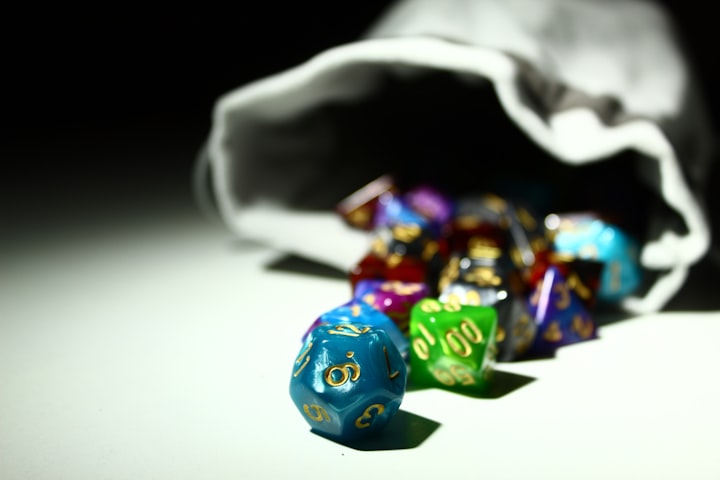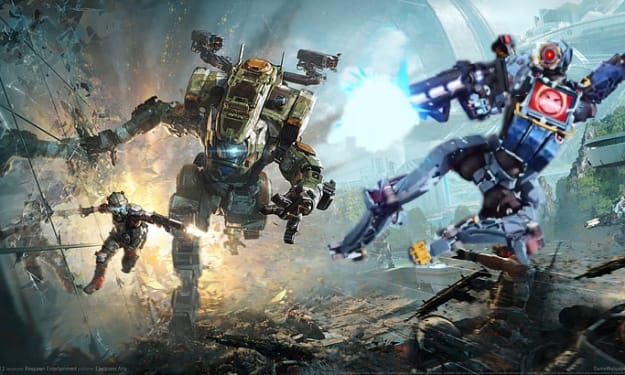Should you play D&D?
The world's most popular TableTop RPG has staged a dramatic comeback in recent years, but is it fun for everyone?

Dungeons and Dragons was created by Gary Gygax (I know it's the perfect name for a fantasy game creator) in 1974. It derived its rules partially from previous tabletop wargames, and included elements of high fantasy mostly laid out by Tolkien in his Lord of the Rings Trilogy. It launched the RPG (Role Playing Game) genre, and since video games were still in their infancy, the game took place on a table with dice.
It almost immediately became a subject of great division and passion.
Nowadays the mainstream is fraught with nerdom, Star Wars and Marvel superheroes lead box office tallies around the world, Amazon is producing a show from the Bible of Tolkienism, the Silmarillion, and none of it seems to be slowing down. But in the seventies and eighties that was far from the norm. In a world where all those things were something to be mocked, D&D arrived to be an interactive, social game for people who shared interest in the uncool. It meant that the bullied could make friends, the casual consumer of fantasy could be an active participant. But other people saw these groups of nerds talking about spells and assumed they were summoning the devil. A natural reaction. And so, D&D was a passionate, divisive topic that waned and bloomed every so often in the public eye.
And then a handful of mainstream mediums changed things. Community, Stranger Things, the IT Crowd, and Critical Role. The first three are popular TV shows, each of which aired episodes that made D&D look really fun. The third can be given credit as helping to (re)popularize not only D&D, but the podcast format as well. And so now the original RPG is back in bloom, but is it right for you?
For the Newcomer
D&D essentially boils down to two things, rolling dice and roleplay. Dice rolling comes when the Dungeon Master, who runs the game, needs to determine if an action that the player is attempting will succeed. If everything the player wanted to do was successful the game would be too easy, so you choose what you're good at and what you are less good at (broadly) and when faced with an obstacle roll a die and see if you succeed. It's an oversimplification, but that's really what the dice rolling boils down to. It can apply to something as simple as persuading a shopkeeper to lower their prices, and as complex as a double gainer off of a tower wall to rescue a princess.
Roleplay is what sets D&D apart.
In a movie or video game you take a back seat. Even the most immersive video game is still limited by the pre-written code, and operating Soutside of that a code is impossible. Tabletop games do not suffer the same restrictions. Whether you roleplay as an angry orc who wants to burn every village down, or a more heavily armed version of yourself, once you begin playing you can do literally anything. You play the role of a different person in a different place, and the only limits are what you can think up.
These two make up the essence of the game, but roleplay is far and away the more important. Not only because it offers limitless choice, but because it infuses the dice rolling part of the game as well. If you play as a brave knight you'll choose to roll dice in instances to save others, even though your success will still depend on the dice.
But is it fun?
Yes, but there are some things to note. First of all, speaking specifically about D&D, it's set in fantasy realms. If you hate fantasy tropes, settings, characters, etc. you probably won't love D&D (but you might still like tabletop games). Second, it moves a lot slower than other mediums. The DM has to describe everything that happens, and set up all the places and people with nothing more than spoken word, so it's a lot less quick than just seeing someone on a screen. Also, if you're big into combat, the combat system is turn based, which some people do not like. I personally find the turn based combat system way more interesting and involved than any other I've come across, but it could still be a dealbreaker. Third, it depends pretty heavily on your DM and fellow players. Because D&D is so unrestricted there is infinite opportunity to inject one's own personality. This is a boon for you as a player, but if you play with people you don't like it may also be a detriment.
There's also nothing like it.
Immersion is unparalleled because of your freedom of choice, the character growth is earned and feels like you grow along with the character you play, the settings are ever-changing and adapting to present new wonders and challenges. If you have ever wondered what it would be like to play D&D, give it a try. There's no guarantee that you'll like it, but there's nowhere else that I know of that can provide the same experience. Worst case scenario, you spend an evening with some friends trying something new.
I do hate fantasy. Are there alternatives?
Most certainly. Tabletop RPGs may have been popularized by D&D, but the genre does not end there. From Old West, to Horror, to Sci Fi, to Murder Mystery; if there's a genre of literature you enjoy there's a tabletop game that immerses you in that world. Not being a fantasy fan is... fine I guess... but it doesn't mean you have to rule out tabletop RPGs as a whole. Give them a try, I highly doubt you'll be disappointed.
About the Creator
Rory Hoffman
Rory is a freelance writer and editor from Vancouver, Canada. He graduated with a degree in Political Science and Creative Writing from the University of British Columbia. Adores the fantasy genre and any story that gives that vibe.






Comments
There are no comments for this story
Be the first to respond and start the conversation.